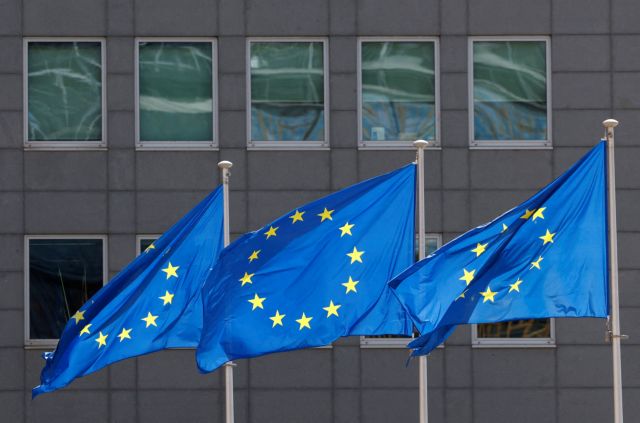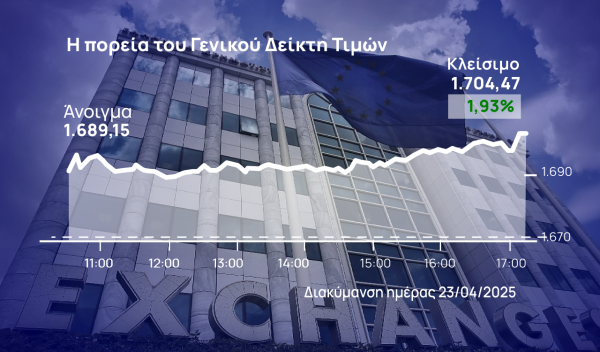
More than €6.5 billion were disbursed to nine Member States today by the European Commission, through the final act under SURE, the instrument designed to protect jobs and incomes affected by the pandemic.
With today’s ninth and final payment, SURE has provided a total of €98.4 billion in financial assistance to 19 Member States.
Countries and amounts
Under today’s operations, Bulgaria received EUR 460 million, Cyprus EUR 29 million, the Czech Republic EUR 2.5 billion, Greece EUR 900 million, Croatia EUR 550 million, Lithuania EUR 142 million , Latvia EUR 167 million, Poland EUR 1.5 billion and Portugal EUR 300 million. All nine Member States had already received financial support under SURE.
How will they be used?
The disbursed loans will finance upfront costs for measures put in place to address the severe socio-economic impact of the COVID-19 crisis.
These loans will help Member States cover the costs associated with financing national short-time working schemes and other similar measures, including for the self-employed, as well as certain health measures. These measures helped protect employment and support income during the COVID-19 pandemic.
SURE successfully helped Member States mitigate the impact of the pandemic in 2020 and supported a rapid recovery in 2021.
The Commission’s latest report on SURE shows that the instrument supported around 31.5 million people and 2.5 million businesses in 2020, and 9 million people and more than 800 000 businesses in 2021.
In June 2021, SURE won the European Ombudsman’s Good Management Award 2021 in the category of citizen-centred service delivery. The period of availability of the SURE instrument ends on 31 December 2022.
Today’s disbursements were financed by last week’s issuance of €6 548 billion of EU SURE social bonds by the Commission, which were well supported by investors in the latter part of this year.
Record
SURE — the European instrument for temporary support to mitigate unemployment risks in an emergency — is a critical element of the EU’s comprehensive strategy to protect jobs and workers in response to the coronavirus pandemic. SURE provides financial support in the form of soft loans from the EU to Member States.
The Commission submitted a proposal for the SURE Regulation on 2 April 2020, as part of the EU’s initial response to the pandemic. The proposal was approved by the Council on 19 May 2020 as a strong sign of European solidarity and the instrument became available after the signature of the guarantee agreements by all Member States on 22 September 2020. The first disbursement took place five weeks after SURE became available.
On 7 December 2022, the Commission issued a new 15-year social bond of €6 548 billion for the EU’s SURE program due in December 2037. The Commission issues social bonds to finance the SURE instrument and uses the proceeds to provide loans support to the beneficiary Member States. More information on these bonds, as well as a full overview of the funds raised under each issue and the beneficiary Member States, are available online here.
For Bulgaria, Cyprus, the Czech Republic, Greece, Croatia, Lithuania, Latvia and Portugal, today’s loans represent top-ups to the initial financial assistance provided under SURE in 2020. These top-ups were granted by the Council between September and November 2022. For Poland, the payment of the last part of the financial assistance granted in 2020 took place today following the resolution in November of an issue related to the absorption of the funding.
Latest News

IMF: US Tariffs Shake Global Economy, Outlook Downbeat
IMF slashes global growth forecast to 2.8% as U.S. tariffs create uncertainty and ‘negative supply shock

First Step Towards New Audiovisual Industry Hub in Drama
The project is set to contribute to the further development of Greece’s film industry and establish Drama as an audiovisual hub in the region

Airbnb Greece – Initial CoS Ruling Deems Tax Circular Unlawful
The case reached the Council of State following annulment applications filed by the Panhellenic Federation of Property Owners (POMIDA)

Mitsotakis Unveils €1 Billion Plan for Housing, Pensioners, Public investments
Greek Prime Minister Kyriakos Mitsotakis has announced a new set of economic support measures, worth 1 billion euros, aiming to provide financial relief to citizens.

Alter Ego Ventures Invests in Pioneering Gaming Company ‘Couch Heroes’
Alter Ego Ventures' participation in the share capital of Couch Heroes marks yet another investment by the Alter Ego Media Group in innovative companies with a focus on technology.

Corruption Still Plagues Greece’s Driving Tests
While traffic accidents continue to claim lives on Greek roads daily, irregularities and under-the-table dealings in the training and testing of new drivers remain disturbingly widespread

Pope Francis Died of Stroke and Heart Failure Vatican Confirms
As news of the official cause of death spread, tributes poured in from across the globe. The 1.4 billion-member Catholic Church is united in grief, remembering a pope who championed inclusion, justice, and compassion

Increase in Both Museum Visits, Revenues for 2024
As expected, the Acropolis was the top archeological site in the country, followed by Sounion, Mycenae, the ancient theater of Epidaurus, and Vergina in northern Greece

Where Greece’s Tourists Come From: A Look at 2025’s Top Visitor Markets
The United Kingdom continues to hold the top spot as the largest source of incoming tourism, with 5.6 million seats booked for Greece this summer — up 2.2% from last year. This accounts for 20% of all international air traffic to Greece

Pope Francis: A Pontiff Who Reshaped the Papacy and Sparked a Global Conversation
His first words from the balcony of St. Peter’s Basilica—“Brothers and sisters, good evening”—set the tone for a pontificate that would challenge norms, favor mercy over dogma, and bring the papacy closer to the people.












![Πλημμύρες: Σημειώθηκαν σε επίπεδα ρεκόρ στην Ευρώπη το 2024 [γράφημα]](https://www.ot.gr/wp-content/uploads/2025/04/FLOOD_HUNGRY-90x90.jpg)



![Ξενοδοχεία: Μεγάλο το ενδιαφέρον για επενδύσεις στην Ελλάδα – Η θέση της Αθήνας [γραφήματα]](https://www.ot.gr/wp-content/uploads/2025/03/Athens-hotels-90x90.jpg)
























 Αριθμός Πιστοποίησης
Αριθμός Πιστοποίησης